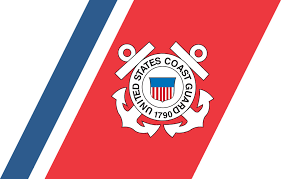05
Jul
SUBJECT: Acceptance of Electronic Vessel Documentation/Certificates
Effective immediately, in lieu of requiring original vessel documentation, ports shall accept e-Certificates and Vessel Registries, per the following guidance:
The following certificates and Statements of Voluntary Compliance may be issued in electronic format:
- International Tonnage Certificate (1969);
- International Load Line Certificate;
- SOLAS Certificates; and
- Document of compliance with the special requirements for ships carrying dangerous goods.
All electronic documents should have the following features:
- Validity and consistency with the format and content required by the relevant international convention or instrument, as applicable;
- Protection from edits, modifications or revisions other than those authorized by the issuer or the Administration;
- A unique tracking number to be used for verification; and
- Unique tracking number means a string of numbers, letter or symbols used as an identifier to distinguish an electronic certificate issue by an Administration or its representative from any other e-Certificate issued by the same Administration or its representative.
- A printable and visible symbol that confirms the source of issuance.
- Verifying (Verification) means a reliable, secure and continuously available process to confirm the authenticity and validity of an e-Certificate using the unique tracking number and other data contained on or embedded in the e-Certificate.
Additionally, the Certificates of Financial Responsibility (COFRs) are now issued to vessels electronically by the USCG National Pollution Funds Center (NPFC). These documents can be viewed via a searchable database to obtain the number, vessel name, operator name, and dates of coverage. Vessels are no longer required to keep hard copies of COFRs on board, but may print out a document from the NPFC site (https://npfc.uscg.mil/cofr/default.aspx)* indicating a COFR is on file.
Verification instructions for e-Certificates not issued by the USCG shall be available onboard any ship to which e-Certificates have been issued to ensure that electronic certificates can be validated quickly if a reason to question exist. Likewise, any necessary equipment for verifying the validity of the certificates (computer access, Quick Response reader, etc.) should be provided onboard for verification purposes.
Certificates that are issued directly by the Coast Guard will continue to be issued in paper format for the time being. Certificates issued by other agencies of the U.S. Flag Administration including those required to be issued under the authority of the Environmental Protection Agency and the Federal Communications Commission will continue to be issued in the traditional manner or as otherwise accepted or delegated by those respective agencies.
Ports should accept copies of documents unless there is a reasonable belief that the copies presented may have been altered or falsified. However, CBP shall continue to require the production of any documents or papers deemed necessary for the proper inspection/examination of the vessel, cargo, passenger, or crew.
Nothing in the USCG’s policy letter limits CBP from requesting additional information to verify the authenticity or validity of an e-Certificate, however a vessel owner, operator shallnot be required to provide e-Certificates.
Please direct questions about this Trade Notice to Chief Denise Emmer at denise.emmer@cbp.dhs.gov.
Mark S. Choina
Port Director, Acting
Port of New Orleans
New Orleans Field Office
U.S. Customs and Border Protection
(504) 670-2287 Office

